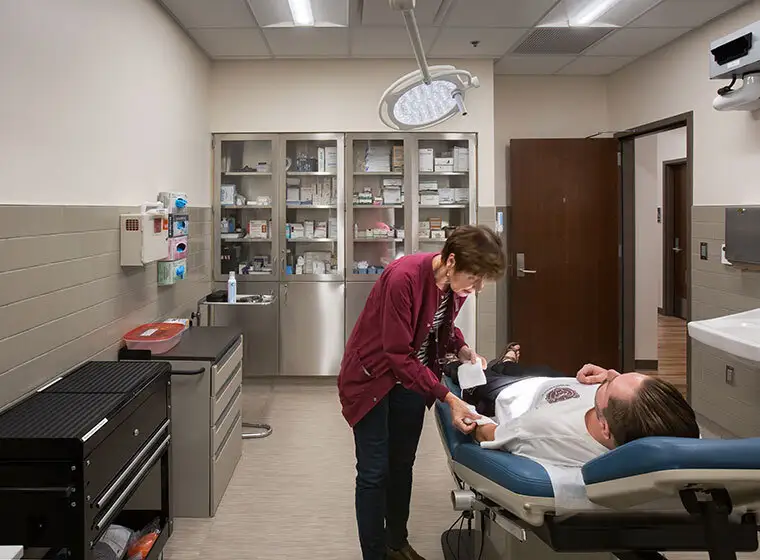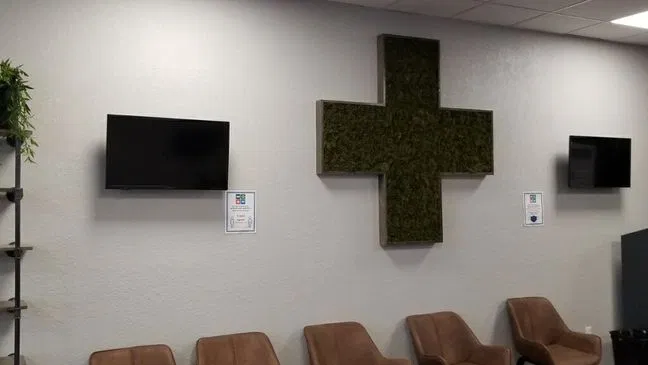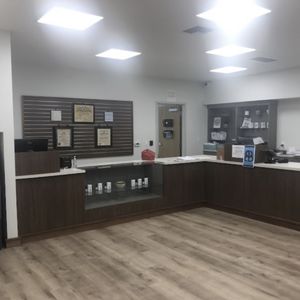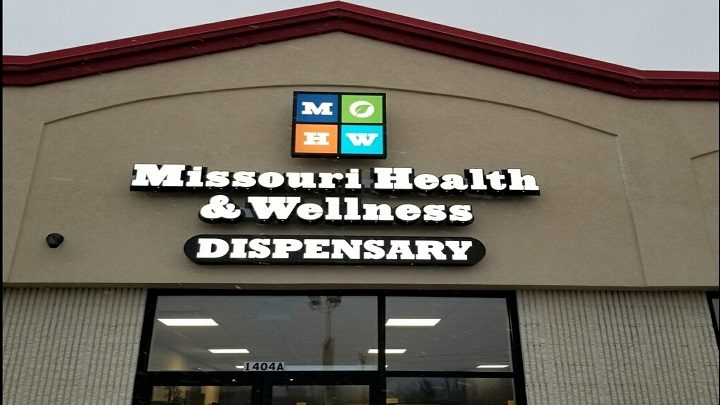Missouri Health and Wellness is a state initiative that aims to improve residents’ overall well-being, increase access to affordable healthcare, and encourage preventive care.
Introduction:
The comprehensive Missouri Health and Wellness initiative seeks to enhance the citizens’ health and overall wellbeing. By emphasizing the expansion of access to high-quality healthcare, promoting preventive care, and addressing the social determinants of health, Missouri Health and Wellness plays a critical role in enhancing the state’s overall health for individuals and families. This article explores the various initiatives, departments, and campaigns that fall under the purview of Missouri Wellbeing and Health, the state’s efforts to advance wellbeing outcomes, and the ways in which residents can take advantage of these resources..

What is Missouri Health and Wellness?
Missouri Health and Wellness is an all-encompassing initiative spearheaded by the state government, community organizations, healthcare providers, and legislators with the goal of enhancing the health outcomes of Missourians. This drive includes a variety of services, such as wellness initiatives aimed at promoting healthier lifestyles and medical coverage programs for low-income residents.
- Access to Affordable Healthcare: Making healthcare more accessible to people and families across the state, especially those who might encounter difficulties because of their location, financial situation, or insurance status.
- Preventive Care and Education: Encouraging locals to prioritize screenings, routine examinations, and prevention to lower their risk of chronic illnesses and take care of medical problems before they worsen.
- Public Health Initiatives: Important health issues like obesity, substance abuse, mental health, and the prevention of infectious diseases are addressed through outreach, education, and community programs.
Key Programs under Missouri Health and Wellness
- MO HealthNet (Medicaid Expansion):
One of Missouri Health and Wellness’s most significant initiatives is MO HealthNet, the state’s Medicaid program. Voters in Missouri approved a Medicaid expansion ballot measure in 2021, greatly increasing the number of adults with low incomes who have access to healthcare. More Missourians are now eligible for Medicaid coverage as a result of the expansion, which enables them to access low- or free health care services like doctor visits, hospital stays, mental health services, and preventive care. The program, currently referred to as MO HealthNet Development, serves adults aged 19 to 64 whose income is at or below 138 percent of the federal poverty threshold. This extension ensures that more people can receive basic clinical consideration, which is a fundamental step toward reducing the number of uninsured occupants and further developing wellbeing results. - Health Insurance Marketplace Assistance:
Missouri residents can search for health plans that fit their budget and concerns through the Medical coverage Commercial Center. Residents can now more easily obtain health insurance through online portals such as HealthCare.gov, where they can compare plans offered by different insurers, thanks to the Reasonable Consideration Act (ACA). Furthermore, the state offers resources to help people understand plan options, shop around, and apply for subsidies if they qualify for them. Missouri also offers assistance to those in need. - Healthy Blue Missouri:
Through the Healthy Blue program, individuals covered by the state’s Medicaid expansion can connect with primary care physicians, specialists, hospitals, and pharmacies. Among the services that this initiative assists Medicaid recipients in receiving are preventive care, mental health services, maternity and newborn care, and chronic disease management. Program participants have access to a network of medical professionals who work together to deliver personalized, integrated care, supporting the concept of coordinated care. This focus on collaboration improves overall wellbeing outcomes and reduces the number of visits to trauma centers, which helps to improve the quality and persuasiveness of medical services. - The Missouri Department of Health and Senior Services (DHSS):
The Missouri DHSS is the main public health service organization in the state. This department oversees the state of Missouri’s immunization, health education, disease prevention, and maternity and child health initiatives.

- Immunization Programs: One of the most significant projects of the DHSS is immunizing residents, especially children and vulnerable groups, against diseases that could have been prevented.
- Chronic Disease Prevention: By means of health promotion, education, and screening initiatives that work to manage and prevent diseases like obesity, diabetes, and heart disease.
- Mental Health and Substance Abuse Services: granting access to support groups, addiction treatment, and counseling in order to meet the state’s growing need for mental health services.
- Family and Community Health Services: Providing families with the means to access child care, prenatal care, and other health services that contribute to their family’s well-being.
- Wellness and Prevention Programs:
Missouri has prioritized counteraction and well-being, believing that maintaining excellent well-being is preferable to treating illness. Some of the noteworthy health initiatives are as follows:
- Show Me Healthy Women: This program offers free screenings for breast and cervical cancer to low-income, uninsured women, enabling early detection and potentially life-saving preventative care.
- Tobacco Cessation Programs: Missouri offers a plethora of programs to help smokers stop and steer clear of tobacco products. These programs often provide guidance, medication, and community support to reduce tobacco use rates and improve respiratory health.
- Obesity and Physical Activity Programs: The state encourages real labor and healthy eating through initiatives like school health programs, neighborhood wellness competitions, and entry into the ranchers’ business sectors. Efforts to prevent weight gain focus on improving diet and increasing physical activity, especially for children and marginalized populations.
- Senior Services and Long-Term Care:
The elderly population of Missouri can also access specialized programs offered by the Department of Health and Senior Services. These comprise:
- Senior Wellness Programs: Seniors can maintain their well-being as they age by receiving screenings, wellness evaluations, and educational materials from these projects.
- Home and Community-Based Services (HCBS): Missouri offers services that let old and disabled people live freely in their own homes instead of long-term care institutions. Individual care assistants, home health services, and adult day care programs are all included in HCBS.
Challenges and Areas for Improvement

Missouri Health and Wellness has made tremendous progress, but the state still has challenges in providing equitable access to healthcare for all residents. The biggest challenges consist of:
- Rural Healthcare Access: 1: Access to medical service providers and offices is restricted in many Missouri provincial regions. Disparities in access to timely and reasonably priced healthcare still exist in these areas, even though telehealth programs and mobile clinics have helped to mitigate some of these problems.
- Health Disparities: Inequalities in healthcare outcomes and access continue to exist for certain populations, https://www.googleadservices.com/pagead/aclk?sa=L&ai=DChcSEwiBupbu3p2JAxURi4MHHc4AN20YABAAGgJlZg&co=1&ase=2&gclid=CjwKCAjw1NK4BhAwEiwAVUHPUNhUSol5KbV8VTqZA0KvwRS_CnjcmEb2DiFPFElFPVB1UcsLJnq8jhoCMRYQAvD_BwE&ohost=www.google.com&cid=CAESV-D2Yc8qtXu0-5t-H8bEaRHXidEaxU_tSjMWsBApfDWCj5uvOxfTo6W5nSKA8ewJgj_x-ejz8JZ09pNG-LheORLpcX4NUSWUpQyD_7sxMb3YwQuFdKnWGQ&sig=AOD64_2cnBqE2sXA75oFcGwqxNvyvrZ0Ow&q&nis=4&adurl&ved=2ahUKEwjX_4_u3p2JAxUvSvEDHbo8Gt8Q0Qx6BAgJEAEespecially minority and low-income groups. Addressing these disparities through focused outreach and community-based initiatives is a continuous priority.
- Mental Health: Mental health services are still underfunded and unavailable to many residents. Increasing access to mental health services is essential for improving the general well-being of the state, especially in rural areas.
How Can Missouri Residents Benefit from Health and Wellness Resources?
Residents of Missouri can take advantage of a variety of wellness resources to increase their prosperity:
- Access Health Services: By visiting the Missouri Division of Wellbeing and Senior Administrations website, residents can familiarize themselves with the services available in their area, such as free screenings, vaccinations, and health programs.
- Apply for MO HealthNet (Medicaid): Those who qualify for Medicaid may apply for coverage through the MO HealthNet program. According to the new development, there are presumably more Medicaid-eligible residents than at any other point in recent memory.
- Use the Health Insurance Marketplace: Residents of Missouri who do not qualify for Medicaid may visit the Health Insurance Marketplace to research cost-effective health plans and submit an application for financial aid under the Affordable Care Act.
- Participate in Wellness Programs: Wellness initiatives supported by the state, such as those aimed at preventing obesity, helping people quit smoking, and promoting senior health, have the power to enhance general health and reduce the chance of chronic illness
Conclusion
Missouri Health and Wellness makes a major effort to enhance everyone’s health by providing preventative services, wellness initiatives, and easily accessible healthcare. By continuing to address healthcare access gaps, encouraging healthier lifestyles, and providing support to vulnerable populations, Missouri has the potential to create a more robust and healthier future for its citizens. Through Medicaid expansion or wellness initiatives, Missouri is making sure that everyone has the opportunity to lead a life that is healthier and more satisfying.



